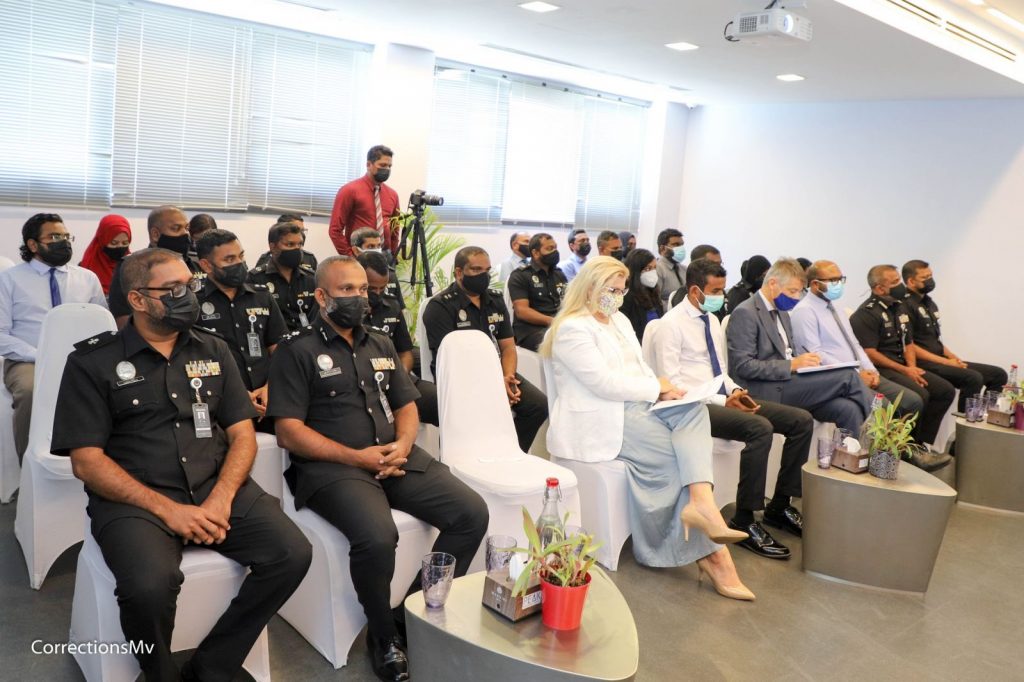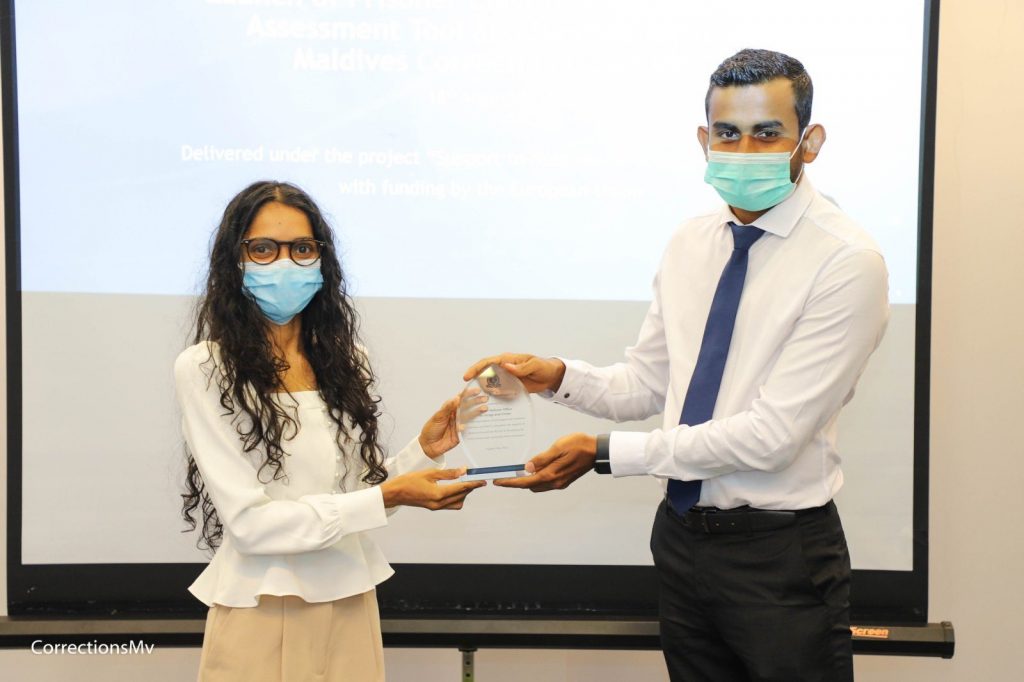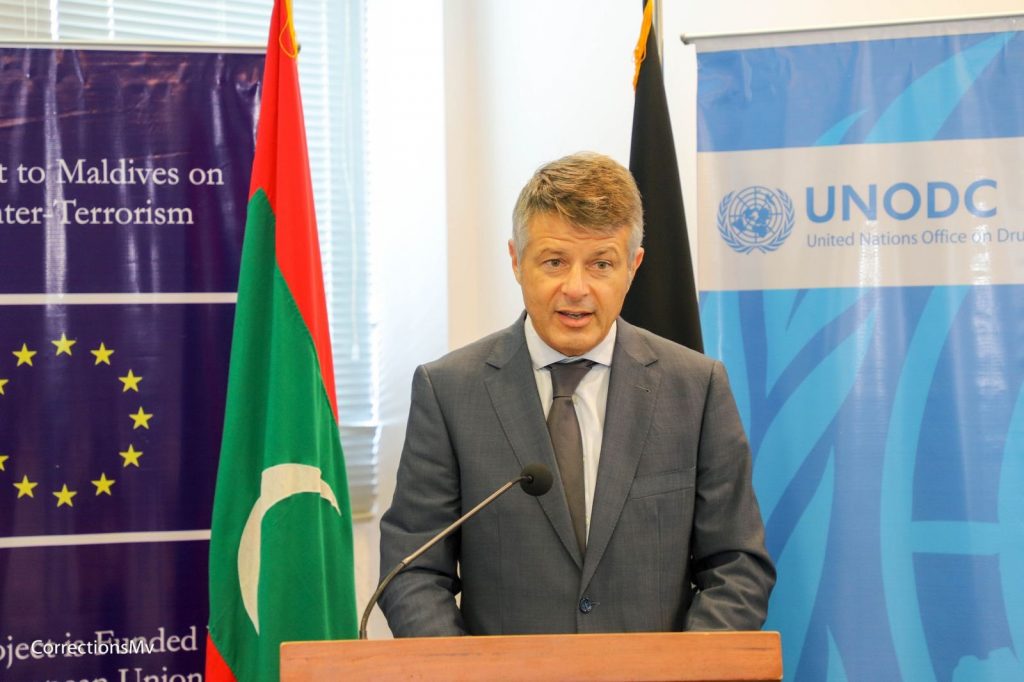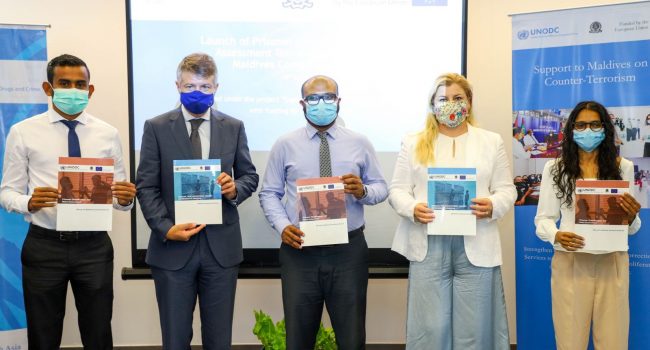United Nations Office for Drugs and Crime (UNODC) has held a ceremony today to hand over the “Prisoner Classification and Risk Assessment Tool and manuals” compiled with financial aid from European Union (EU), to Maldives Correctional Service (MCS).
The ceremony was attended by EU’s Ambassador to Sri Lanka and Maldives H.E. Denis Chaibi, Minister of State for Home Affairs Ar Ali Nazeer, UNDP’s Resident Co-ordinator Ms. Catherine Heswell, UNODC National Programme Coordinator Ms Thoiba Saeed, Commissioner of Prisons Ahmed Mohamed Fulhu, Deputy Commissioner of Prisons Uz Ibrahim Mohamed Didi, Assistant Commissioner of Prisons Mohamed Asif and commissioned officers.

Prisons are popular recruitment camps of terrorism networks, and it is essential for the national security to prevent this. Hence, the “Prisoner Classification and Risk Assessment Tool and manuals” will help to prevent the spread of terrorism and extremist ideologies.
In addition to handing over the tools, Commissioner of Prisons handed over Plaques of Appreciation to UNODC and EU in appreciation of all the assistance provided by both agencies in various manners.

Despite being unable to participate in the ceremony, Minister of Home Affairs Honourable Sheikh Imran Abdulla sent a message that taking timely steps to prevent the spread of violent extremist ideologies within the prisons, and identifying those who may need rehabilitation and reintegrating is something that we need to do urgently and efficiently. He also stated support from international agencies are required to achieve this and thanked UNDP, UNODC and EU for their continued support.
Ambassador H.E Denis Chaibi in his speech noted the importance of joint efforts in the fight against terrorism and in preventing the spread of violent extremism.

UNDP’s Resident Co-ordinator Ms Catherine Heswell and UNODC’s Ms. Thoiba Saeed highlighted the numerous trainings conducted to develop MCS officers, the importance of these training and how they will continue to support capacity building for MCS in various ways.
Commissioner of Prisons thanked Ministry of Home Affairs, UNODC and EU for their generous support to building a workforce to professional standards and to develop the prison system. Commissioner also stated that one of the biggest reasons for the spread of extremist ideologies in prisons was due to Maldivian prisons not having the capacity to separate those incarcerated or remanded for terrorism-related offences from the general population; but the tools and manuals handed over today will help to easily identify inmates with links to terrorism activities and segregate them to the Special Management Unit (SMU). In addition, the Commissioner noted that the officers who completed the Train the Trainers Programme of “The Nelson Mandela Rule: The minimum standard for the treatment of prisoners” were subsequently able to train a further 141 officers in five batches.
















